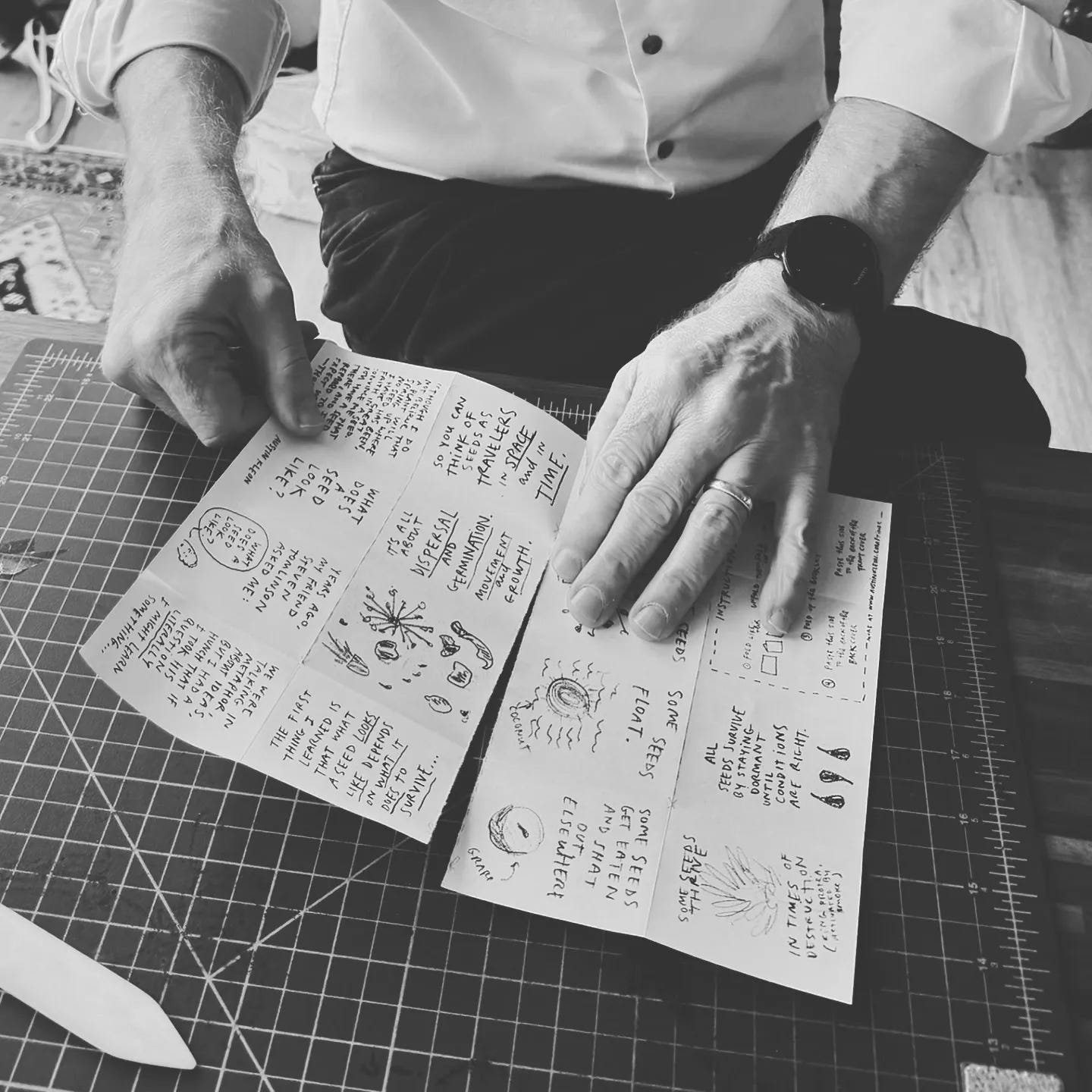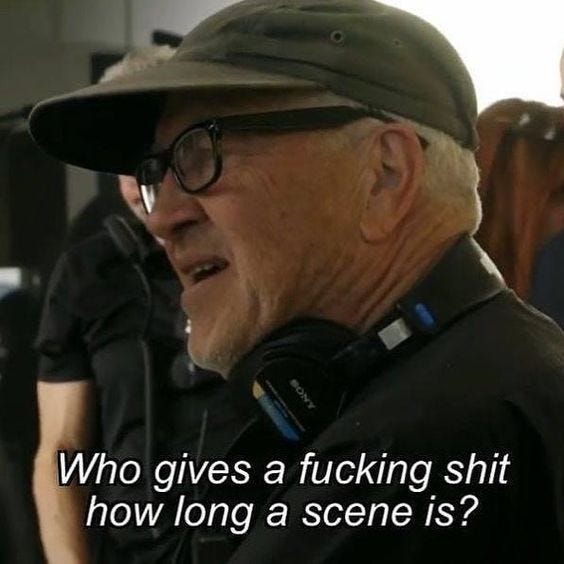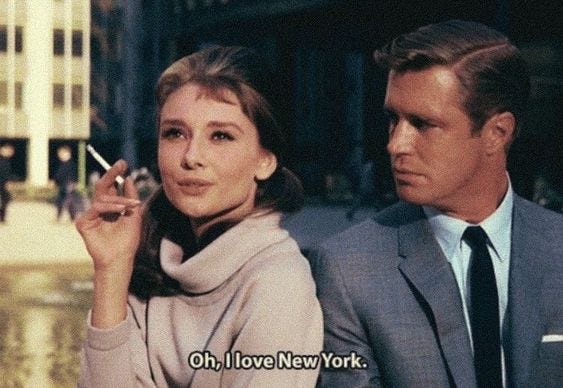Hi Move Fast, Think Slow readers!
I’ve missed a few weeks. My baaaaaaad.
In case you missed it, MF/TS wrote about how we’re optimizing ourselves to death. That’s code for our quest to over-measure everything for optimal performance has led to watered-down creativity. Watered-down entertainment products and experiences. Separate yet related is this piece, “The Tyranny of the Algorithm.” There was this hard-hitting tid-bit:
“The irony of it all is that these spaces are supposed to represent spaces of individuality, but they’re incredibly monotonous,” Gonzalez said. It wasn’t just the spaces that were homogenous, but also the customers, Gonzalez observed: “If you go into the cafes, they’re predominantly white. But [Kloof Street] is historically a neighbourhood for people of colour.” Only certain types of people were encouraged to feel comfortable in the zone of AirSpace, and others were actively filtered out.
The article goes on to argue that there will only be more of this in the future. This spells opportunity for those who can keep it funky and fun. Funky and fun is the path towards bringing some much needed difference and light into our world. I SAID IT! 👀
I also wrote Bezos Business School. File this under “genius steals.” In that, you may want to study how Bezos leads the work and his teams. Yes, Amazon represents the fundamental dysfunction of late-stage capitalism. But also, they’ve consistently developed new products or acquired companies with great success. How did he do it? Why did he and his teams get it right more often than not? 🤔
A reader of this newsletter dug the Bezos School piece so much that they asked me to share it with their company. Life goal unlocked: I was looking to do more of these types of conversations, so it felt good to give it a real-life practice run. Their feedback after my presentation was positive. You can’t be mad at that. 🤗
WHAT’S COOKING THIS WEEK WITH MF/TS
Speaking of talking to big groups, I’ve recently spoken to college students graduating from the University of Arizona and American University. The prompts for the discussions were: what do you do for a living and what is your day-to-day like?
I approach these discussions by sharing the longer story. By telling them how no one let me in the front door. I had to find the side door to get to where I am (professionally) today. Beyond the storytelling and the tidbits of info on what an Account leader does at an advertising agency, I share “pro tips / life advice.”
While most of my readers might not be recent college grads, I’d argue the advice I shared with them is timeless. Just because college grads are starting out their professional journies doesn’t mean you can’t renew your own journey. No matter what stage or age you are.
So, without further ado, here’s my pro tips / life advice for people looking for a high-quality life.
ADVICE TO COLLEGE GRADS (AND ANYONE WHO IS LOOKING FOR A HIGH QUALITY LIFE)
GOING THE HARD WAY = GROWTH
The things that challenge and scare us tend to be the things from which we grow the most. Don’t run away from those things. Run towards them.
USE THE TOOLS BUT DON’T BE DOMINATED BY THE TOOLS
The world isn’t on your screen. Yes, technology is a great tool. But it is a tool. If you let it become your everything, you will limit the possibilities of your life. And I’d argue remove the magic of living. Understand and use the tools but don’t let it dominate you.
USE YOUR HANDS & MAKE THINGS
Find out how to make something with your hands. Anything. It’s good to be creative. It doesn’t matter if you’re not a creative person. Not only will it be therapeutic for you, but you will learn to appreciate what it takes to get from nothing to something.
EMBRACE IDEAS
Want to know what the world needs more of? Really good ideas. As young people, you will have a lot of ideas. Some of them will be crap. Some of them will be great. Regardless, learn how to come up with ideas. Then learn how to sell them. More on that later. The future is about having great ideas, selling those ideas, and then executing those ideas.
FIND POSITIVE SOCIAL ECOSYSTEMS
Look for people, places, and spaces with positive feedback loops. Remove those negative people and experiences in your life immediately! Even if this means a temporary stint of loneliness. Nothing good comes from negativity. Fight for positivity. Fight for positive people, places, and spaces in your life. It’s one of the big differences between a rich life and a poor one. And I’m not talking about money.
FIND BALANCE & BE HEALTHY
Want to be a high performer and win? Be healthy. Don’t be hustling 24/7. Find the time and space to get away from “productivity.” Go for walks outdoors. Eat right. Get your cardio/workouts in. Commit to the balance and to good health and you will separate yourself from pack. And you do want to separate from the pack. It’s a competitive marketplace out there.
TAKE ACTING AND/OR IMPROV CLASSES
Everything in American professional life is a performance (to some degree.) And we are all characters in a play. Learn to play different roles for different rooms. Learn to act fast on your feet. Not only is it fun, but you can find ways to positive influence the work.
EVERYTHING IS SALES & NEGOTIATIONS - BE A STUDENT OF THIS
I heard a great quote from Daniel Pink the other day. “One in nine professionals in America are sales executive. The other eight are also in sales but they just don’t know it.” I don’t care if you’re an analytics person, a creative person, or a deep researcher. Everything is sales and negotiations in modern business today. You better have an understanding of what is the definition / style of good sales & negotiation or you might not get to where you want to be.
SERVICE THOSE AROUND YOU
A lost art in modern American life is service. You will have a leg up if you have worked in hospitality/restaurants in your life. That idea of servicing your customers and colleagues is smart. Being excellent at servicing others is even better. Those who know how to serve the best are the ones that go the furthest. Good service is about getting over yourself and your ego. Focusing on making the best customer / colleague experience possible is often what separtes average experiences and performance versus excellent experiences and performance. This is why Mickey Drexler, the former CEO of J.Crew liked hiring people who worked at restaurants/coffee shops than people who had MBAs. Drexler knew he’d get more better quality and production from the former than the latter.
This from Stephen Colbert’s 2011 commencement speech at Wake Forest:
“In my experience, you will truly serve only what you love, because, as the prophet says, service is love made visible. If you love friends, you will serve your friends. If you love community, you will serve your community. If you love money, you will serve money. And if you love only yourself, you will serve only yourself, and you will have only yourself. So no more winning. Instead, try to love others and serve others, and hopefully find those who love and serve you in return.”
GO ON ADVENTURES & TRAVEL
Go see the world. Get out of your comfort zone. Talk to people from other walks of life. It’s important to learn how we are alike and how we are different. It will only add to your life in positive ways.
A CONCLUDING THOUGHT: SEEKING DISCOMFORT & EXPLORATION
I was sitting down with a friend last week talking about fame and success, or lack thereof. He was sharing frustrations and his contentment on where he’s landing. It reminded me of this piece by the great Derek Thompson finding “Hot Streaks” in your career.
A few key takeaways from the piece:
In Wang’s most recent analysis, he found that artists and scientists tend to experiment with diverse styles or topics before their hot streak begins. This period of exploration is followed by a period of creatively productive focus. “Our data shows that people ought to explore a bunch of things at work, deliberate about the best fit for their skills, and then exploit what they’ve learned,” Wang said. This precise sequence—exploration, followed by exploitation—was the single best predictor of the onset of a hot streak.
But Wang’s paper asks us to consider the possibility that many of today’s wanderers are also tomorrow’s superstars, just a few months or years away from their own personal hot streak. Periods of exploration can be like winter farming; nothing is visibly growing, but a subterranean process is at work and will in time yield a bounty.
The point is not that exploration is good and exploitation is bad. It’s that all success—career success, corporate thriving, national flourishing—requires that we pay close attention to the interplay between scouting new ideas and pumping established wells.
I love this notion of “winter farming.” You might not have visible gains to show for in your efforts, but it doesn’t mean you’re not onto something interesting.
For myself, I’m often questioning if I’m scouting new ideas enough or if I’m doubling down on established wells in a focused way. As with all things in this life, it’s a dance.
IMAGES OF THE WEEK
Go forth.
Stay safe.
Ride the wave.
-Mitch














